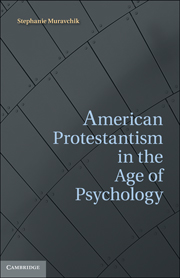Book contents
PART TWO - THERAPY AS FELLOWSHIP IN ALCOHOLICS ANONYMOUS
Published online by Cambridge University Press: 05 July 2011
Summary
Introduction
Unlike the pioneers of the Council for Clinical Training (CCT), the mid-century members of Alcoholics Anonymous (AA) had little admiration for psychiatrists and psychologists. Having little to offer people who were struggling against a chronic compulsion to drink, such professionals seemed more like quacks than wise scientists. The AA pioneers believed they had to create their own therapeutic knowledge and practice. Their distance from the assumptions of the behavioral sciences left them free to revive nineteenth-century traditions of lay healing that blended spiritual and psychotherapeutic goals.
Chapter 4 examines AA's development of democratic lay-led group therapy as the preeminent treatment for compulsive drinkers. Pioneers' own experiences and beliefs about community, cosmology, and human nature shaped their praxis. In the group's early years, it rejected therapeutic professionalism. Members decided that hierarchical and commercial relationships did not heal; only egalitarian friendships could. Furthermore, the multiplicity of group bonds were more efficacious than those between mere dyads (e.g., doctor–patient). An early friend to the movement declared that: “A. A. has proved that democracy is a therapy. The monarchic and aristocratic principles never cured alcoholism.”
Although AA therapy differed from that developed by psychologists and psychiatrists, it was quickly accepted as a legitimate therapy for chronic inebriation. In fact, in less than twenty years, it became the preeminent therapy for compulsive drinking in the United States. Chapter 4, “Democracy Is a Therapy,” examines this history. Since it differed from professional psychotherapy, however, AA engaged a half-century-long debate about its relationship to it.
- Type
- Chapter
- Information
- American Protestantism in the Age of Psychology , pp. 81 - 82Publisher: Cambridge University PressPrint publication year: 2011



